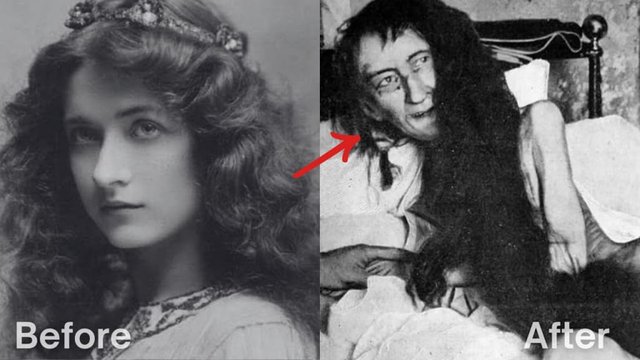Blanche Monnier was born on March 1, 1849 in Poitiers, France. The daughter of an aristocratic family, she was known for her beauty and delicacy. Her mother, Louise Monnier, was a strict and controlling woman, while her father, a man of respectable position, died when Blanche was still young. From an early age, Blanche was expected to follow the strict social code of the time by marrying a man of suitable status.
In her late teens and early adulthood, Blanche showed an interest in an older lawyer of lower social status, something unacceptable to her mother. Louise Monnier strongly disapproved of this relationship, as she wanted her daughter to marry someone from the nobility in order to maintain the family's prestige. When Blanche insisted on following her heart, her mother took a cruel and unthinkable decision: she locked her in a small room in the family home, completely isolating her from the outside world.
For 25 years, Blanche remained imprisoned in inhuman conditions. The young woman, once beautiful and full of life, was kept in an unventilated room, dirty and infested with insects. Her only company was darkness and silence. During this time, neighbors and family acquaintances were led to believe that Blanche had disappeared or died. Meanwhile, her mother and brother, Marcel Monnier, carried on with their lives as normal, maintaining the charade that nothing unusual was happening in the family home.
In 1901, after 25 years of confinement, an anonymous complaint reached the French authorities. The letter warned of Blanche Monnier's terrible situation, detailing the deplorable conditions in which she lived. The police immediately launched an investigation and, when they arrived at the Monnier home, they were confronted with a shocking scene.
When they broke down the door to Blanche's bedroom, they found her lying on a bed covered in feces and leftover food. The woman, now 52, weighed just over 25 kilos and was severely malnourished. Her body was frail, her bones apparent, and her psychological state was devastated by the extreme isolation.
Louise Monnier was arrested immediately, but died a few days later due to heart problems. Her son, Marcel, was brought to trial, but was acquitted on the grounds that he had no control over his mother's actions. The court decision caused great outrage among the French population, who saw Blanche's brother as an accomplice to the heinous crime.
After her rescue, Blanche was taken to a psychiatric hospital, where she received treatment for her physical and psychological conditions. However, the long period of confinement had irreversible effects on her mind. She spent the rest of her life under medical care, unable to recover her sanity or return to a normal life.
Blanche Monnier's story caused great commotion in France and around the world, becoming one of the most shocking cases of abuse and deprivation of liberty in modern history. The case served to raise discussions about human rights and the conditions of the mentally ill at the time. Her tragic story is remembered as an example of the cruelty that can be imposed by those who should offer love and protection.
Blanche Monnier died in 1913 at the age of 64, leaving behind a legacy of suffering and injustice. Her name, however, continues to be remembered as a symbol of human resilience and the need for vigilance against abuse committed within one's own home.
